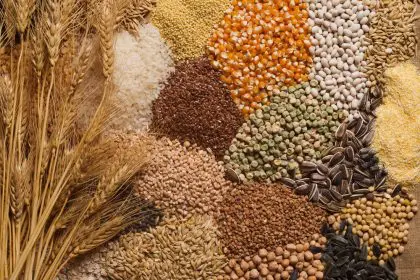In the pursuit of effective weight loss strategies, the role of diet is paramount. Recent research underscores the potential benefits of increasing protein and fiber intake as a means to achieve sustainable weight loss. This article examines the findings of a significant study and offers practical advice for enhancing your dietary habits.
Insights from recent research
A pivotal study published in Obesity Science & Practice investigated the effects of dietary modifications on weight loss. Over the span of a year, 22 participants attended 19 educational sessions focused on nutrition, accompanied by homework assignments related to their dietary choices. Researchers closely monitored changes in weight, eating habits, and body composition throughout the study.
The results were encouraging: all participants managed to lose weight, but those who made a concerted effort to increase their protein and fiber consumption experienced the most notable reductions, with some shedding as much as 9.6% of their initial body weight. Remarkably, this weight loss occurred without the reliance on traditional methods such as calorie counting or meticulous food logging.
The significance of protein and fiber
Nutrition experts emphasize that the combination of protein and fiber can significantly bolster weight loss efforts. These nutrients are digested more slowly than simple carbohydrates, which fosters a prolonged sense of fullness. This feeling of satiety can help mitigate unnecessary snacking and ultimately reduce overall caloric intake.
The role of protein and fiber in weight loss
While increasing protein and fiber can be beneficial for weight management, it is important to understand that individual results may vary. Merely adding these nutrients to your diet does not guarantee weight loss; however, they can contribute to a greater sense of fullness for extended periods. The more satisfied individuals feel after meals, the less likely they are to overindulge later.
Practical strategies for boosting protein and fiber intake
Incorporating more protein and fiber into your meals can be straightforward with the right approach. Here are some practical tips to enhance your intake of these essential nutrients:
1. Include protein in every meal
Aim to incorporate a reliable protein source in each meal. Options include yogurt, eggs, chicken, seafood, nuts, and legumes. This practice not only helps to increase your protein intake but also promotes a feeling of fullness that can last for hours.
2. Choose whole grains over refined grains
Make a conscious effort to swap refined grains for whole grains. For instance, opt for 100% whole-grain bread instead of white bread, and consider incorporating barley, quinoa, or brown rice into your meals. Whole grains are typically higher in fiber and provide additional nutrients that can support overall health.
3. Load up on fruits and vegetables
Fruits and vegetables are excellent sources of fiber and should play a central role in your diet. Aim to fill half your plate with a variety of colorful vegetables at each meal. Incorporating legumes, such as chickpeas or lentils, can also add fiber and protein to salads, soups, and stews.
4. Snack wisely
When it comes to snacking, choose options that are rich in protein and fiber. Nuts, seeds, Greek yogurt, and fresh fruit are all great choices that can help keep hunger at bay between meals. These snacks can provide the necessary nutrients to support your weight loss journey.
5. Experiment with new recipes
Explore new recipes that emphasize protein and fiber-rich ingredients. Consider adding beans to your favorite chili recipe or using oats in smoothies and baked goods. Experimenting with different foods can make healthy eating more enjoyable and sustainable.
6. Stay hydrated
Drinking enough water is essential for overall health and can aid in weight loss. Staying hydrated can help manage hunger and prevent confusion between thirst and hunger. Aim to drink plenty of water throughout the day, especially when consuming high-fiber foods, as fiber needs water to function effectively in the digestive system.
7. Seek professional guidance
If weight loss continues to be a challenge despite dietary changes, consider consulting with a registered dietitian or healthcare professional. Personalized guidance can help tailor your approach to meet your individual needs and goals.
Conclusion
Incorporating more protein and fiber into your diet can be transformative for those seeking sustainable weight loss. By understanding the science behind these nutrients and implementing practical dietary changes, you can make significant strides toward achieving your health objectives. Remember, the journey to weight loss is unique for everyone, and discovering what works best for you is essential. Prioritizing protein and fiber can pave the way for a healthier lifestyle and lasting results.















